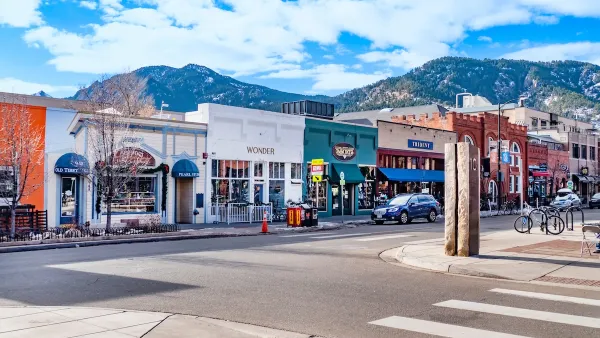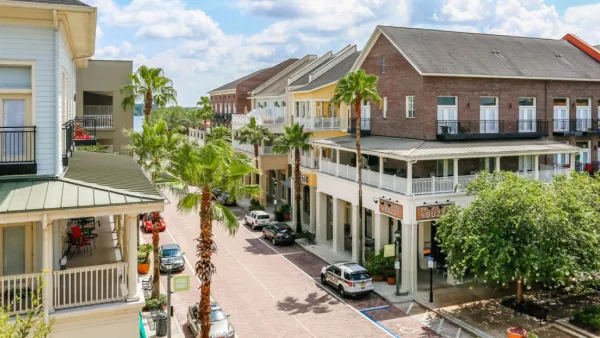Even cities with wealthy tax bases and strong economies face budget shortfalls when it comes to basic needs. Why?

Pointing to recent revelations about the city of Houston’s ailing finances, Charles Marohn of Strong Towns points out that many cities — including extremely wealthy ones like Santa Clara, California — struggle to afford basic infrastructure maintenance.
That’s because this isn’t a wealth problem, it’s a productivity problem. And like all productivity problems, growing faster buys time but ultimately makes the insolvency problem worse. If you lose money on every transaction, you don’t make it up in volume, even in California.
As Marohn explains, the underlying cause of the financial crisis facing many U.S. cities is the “aggressive outward expansion of cities,” which created a vast and unsustainable network of infrastructure that would need maintenance and repair. In California, where Proposition 13 keeps property taxes on existing homes low, cities encouraged outward development to expand their tax base in what Marohn calls a ‘Growth Ponzi Scheme.’
In Marohn’s view, “What we need is a more humble approach, one that starts by recognizing that cities are complex, adaptive systems with unpredictable feedback loops and untold novel responses to stress and opportunity. They are not mere mechanical devices, a collection of streets, buildings, pipes, zoning classifications, and financial products.” Marohn recommends five steps cities can take to make an impact on their local development and finances from the ground up, including building lots of housing, making streets safer, and converting unproductive parking lots to better uses.
FULL STORY: It’s Not Just Houston That’s Broke. So Are Silicon Valley Cities.

Maui's Vacation Rental Debate Turns Ugly
Verbal attacks, misinformation campaigns and fistfights plague a high-stakes debate to convert thousands of vacation rentals into long-term housing.

Planetizen Federal Action Tracker
A weekly monitor of how Trump’s orders and actions are impacting planners and planning in America.

San Francisco Suspends Traffic Calming Amidst Record Deaths
Citing “a challenging fiscal landscape,” the city will cease the program on the heels of 42 traffic deaths, including 24 pedestrians.

Bend, Oregon Zoning Reforms Prioritize Small-Scale Housing
The city altered its zoning code to allow multi-family housing and eliminated parking mandates citywide.

Amtrak Cutting Jobs, Funding to High-Speed Rail
The agency plans to cut 10 percent of its workforce and has confirmed it will not fund new high-speed rail projects.

LA Denies Basic Services to Unhoused Residents
The city has repeatedly failed to respond to requests for trash pickup at encampment sites, and eliminated a program that provided mobile showers and toilets.
Urban Design for Planners 1: Software Tools
This six-course series explores essential urban design concepts using open source software and equips planners with the tools they need to participate fully in the urban design process.
Planning for Universal Design
Learn the tools for implementing Universal Design in planning regulations.
planning NEXT
Appalachian Highlands Housing Partners
Mpact (founded as Rail~Volution)
City of Camden Redevelopment Agency
City of Astoria
City of Portland
City of Laramie





























